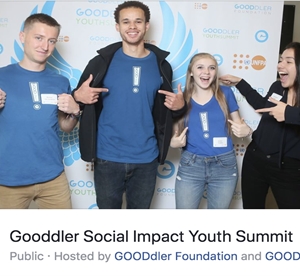Across the country right now, millions of high school students are ramping up their college searches. Many of these students will be focusing on a relatively small pool of top universities. Getting into these colleges used to come down to good grades, high test scores, and a few extracurricular activities. However, within the past five to ten years, these criteria have undergone a rapid change. Good grades are no longer a guarantee of entry, and mediocre grades no longer shut you out from some of the best universities. Instead, colleges around the country have begun a shift in their admissions policy to emphasize applicants who display leadership qualities.
Most colleges broadly agree on what they mean by a “leader.” To put it simply, a leader is someone who identifies a need in their community and takes steps to address it. Leaders are generally inquisitive, have good problem-solving skills, and are highly motivated. (What they are motivated to do is of secondary concern, but it usually should have a positive effect on the local or global community.) These are qualities that might be masked by unremarkable grades if the school curriculum doesn’t fit with the student’s interests, skills, and motivations. The best leaders that colleges search for are those who take the initiative on their own, taking action ranging from spreading awareness of an issue all the way up to starting a business or an NGO.
The first step in becoming the sort of youth leader that colleges are looking for — and that the world desperately needs — is to understand the concept of evolutionary leadership. As described by the Institute for Evolutionary Leadership, a GOODdler partner, an evolutionary leader is more than just someone who leads; they are someone who is capable of seeing beyond the “industrial age worldview” to envision a sustainable future. Instead of limiting themselves by trying to fit into the existing cultures and institutions that perpetuate global and local challenges, evolutionary leaders develop the capacity to intentionally change social realities, to transform the very rules of the game.
Developing evolutionary leadership competencies might seem like a daunting task, and it is. Although no one can be expected to have a solid track record of systemic change by the time they’re applying for colleges, there is a way to give oneself a head start.
The GOODdler Foundation has partnered with the Institute for Evolutionary Leadership to produce the GOODdler Social Innovation Youth Incubator, a five stage program that aims to prepare youth to become future evolutionary leaders. (You can read more about the program in the article written by Fyodor Ovchinnikov.) GOODdler describes the Incubator as a program for “future and emerging leaders and social innovators from 13 to 23 years old who are passionate about creating a world where every human being can grow up to reach their full potential.” Over the course of the Incubator, high school students work in teams to develop an initiative, service, or product that will help develop a sustainable future and take their idea from the drawing board all the way to a real pitch to get feedback from investors, social impact experts, and thought leaders in the field of systemic change. Participants learn many of the principles of evolutionary leadership in conjunction with the development of their ideas, so that by the time the Incubator concludes, they are ready to tackle similar issues in the real world. In fact, many of the participants continue with their projects beyond the timeline of the Youth Incubator. Not only does this help build a sustainable future, but it’s also exactly what top colleges want from their students. As such, the GOODdler Social Innovation Youth Incubator provides a helpful opportunity to change the world — and look good on college applications while doing it!
2018–19 Fall/Winter Incubator will start on October 20th at the Gooddler Social Innovation Youth Summit, an event co-hosted with the United Nations. It will end in May at the Silicon Valley Open Doors conference, where selected projects will be pitched to the panel of prominent Silicon Valley investors.
Apply to join the Gooddler Social Innovation Incubator, Fall/Winter cohort here.




